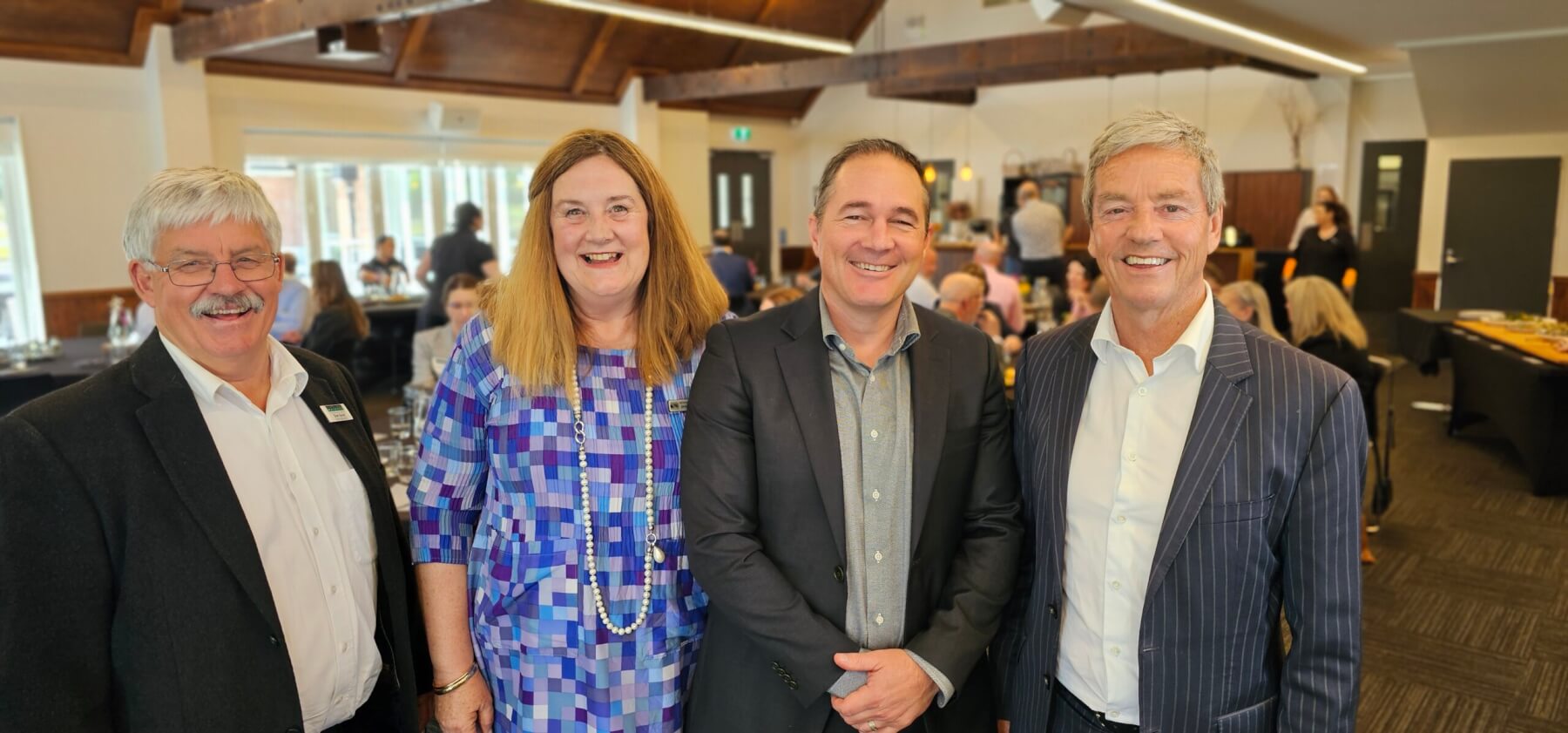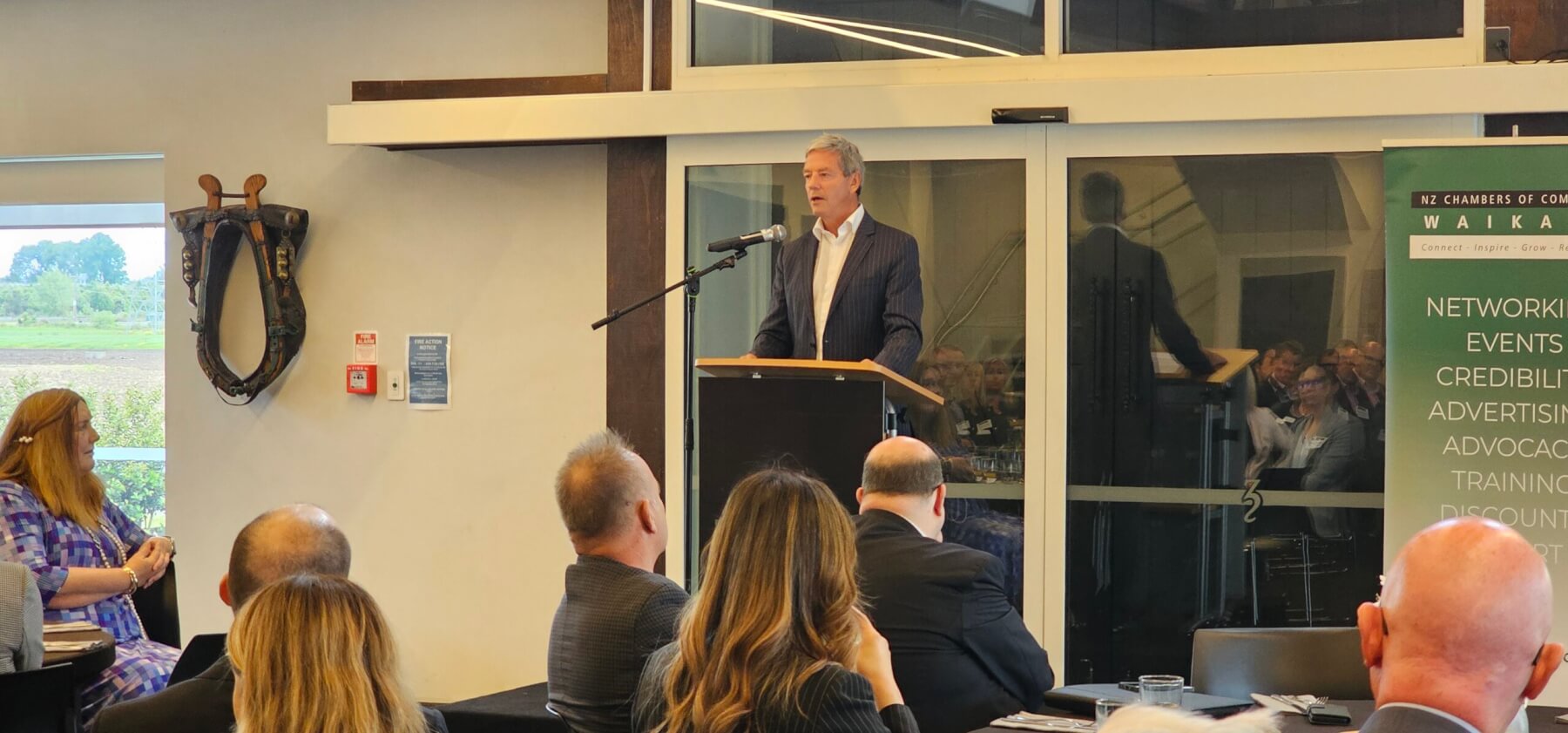
Andrew Bayly at Waikato Chamber of Commerce luncheon.
Local authorities and small business owners who invoice government agencies can expect quicker payment from January, Port Waikato MP Andrew Bayly let slip at a luncheon fixture four days before the official announcement last week.

Waikato Chamber chief executive Don Good, Waikato mayor Jacqui Church, Hamilton East MP Ryan Hamilton and minister Andrew Bayly. Photo: Mary Anne Gill.
In a wide-ranging speech to Waikato Chamber of Commerce members in Newstead, Bayly covered off activities in his portfolios and revealed he wanted to see the government pay its own invoices within five days.
He also wanted compulsory business surveys streamlined by getting rid of redundant questions and using existing data more effectively.
“All that garbage at the front,” including questions about where the business was located would go
“We already know all that because we have your business number.”
Bayly, 62, was first elected to Parliament as the National member for Hunua in 2014. The electorate has since changed to Port Waikato. He is the minister for Commerce and Consumer Affairs, Small Business and Manufacturing and Statistics.
His background in business and farming endeared him to the crowd which included business owners, lawyers, accountants, bankers, manufacturers, consultants, engineering and construction companies.
Chamber chief executive Don Good told The News the address showed Bayly was all over his portfolios.
“This is a minister who is getting sensible stuff done to make it easier to do good business.”
The invoice revelation came after Bayly spoke about the need for economic growth through stimulating innovation, opening up connections and improving New Zealand’s business environment.
“Internally we’ve got a whole focus around getting the right parameters in place to support businesses,” he said.
The Waipā businesses in the room perked up when they heard about manufacturing sector initiatives and plans to align New Zealand’s regulations with Australia to facilitate easier exporting and reduce bureaucratic burdens.
Changes to the Companies Act and financial sector reforms were also planned, said Bayly, who is a chartered accountant and has worked in the banking sector.
He is an advocate for open banking to foster competition and make financial services more accessible and efficient.
The invoicing initiative means the 33 central government agencies who send and receive 1.6 million invoices annually will move to an e-invoicing system from January. It would require them to pay within five business days.
It would be rolled out into other government agencies and local government by January 2026.
“Government agencies are a large client for businesses up and down the country, supplying everything from stationery and furniture, through to services such as software, security and research.
“Prompt payment is especially important for small businesses which have limited cash reserves – an unpaid or late invoice can be the difference between being able to pay staff on time or not.
“Given 97 per cent of all businesses in New Zealand are small businesses, it is crucial for our broader economic success that government agencies pay their invoices quickly,” said Bayly.
Estimates suggest that adopting e-invoicing could generate productivity savings of $4.4 billion over the next 10 years and reduce instances of human error and fraud

Andrew Bayly at Waikato Chamber of Commerce. Photo: Mary Anne Gill.








